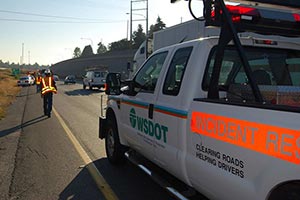Washington DOT Seeks to Diversify Workforce

Building roads takes a lot of people.
The Washington State Department of Transportation wants more of them to be small business owners, especially women and minorities.
To that end, the department will hold a contracting workshop April 28 in Tacoma.
The goal is to help such businesses navigate the agency’s certification process and connect with so-called "prime contractors," the big firms that win bids on multimillion-dollar projects.
Those companies frequently need to hire subcontractors to perform all kinds of work, said Kevin Dayton, administrator for the Transportation Department’s Olympic Region.
That could be traditional construction tasks, such as excavation and paving, but could include jobs such as design work, supply fulfillment, janitorial services or communications, Dayton said.
“We want to diversify our workforce, both internally and externally,” he said. “We think inclusion and engagement with the community are important.”
Federal highway dollars are at stake as well.
Federal Highway Administration rules require states taking federal money to “create a level playing field on which Disadvantaged Business Enterprises can compete fairly for DOT-assisted contracts.”
In fiscal year 2015, the Transportation Department awarded about $49 million to small minority- or women-owned businesses, or 11.7% of the $423 million the state received in federal funding, said Ann Briggs, a department spokeswoman.
That beat the agency’s goal of 11.6%.
Dontel Ball, who owns Ball and Sons Excavation, said he certified his company with the Transportation Department about a year ago.
He said he hasn’t received any work through the Disadvantaged Business Enterprise Program yet, but likes the fact that he gets communications from the Transportation Department about upcoming projects he might bid on.
“You get a pretty good chance at looking at these projects and bidding on them,” said Ball, whose firm does underground utility work, hauling and other jobs requiring heavy equipment.
Ball said he plans to attend the April 28 workshop to meet with prime contractors and others who might consider his company for work.
"One of the advantages is you get to get out and get some exposure," he said. "It’s a really good opportunity."




